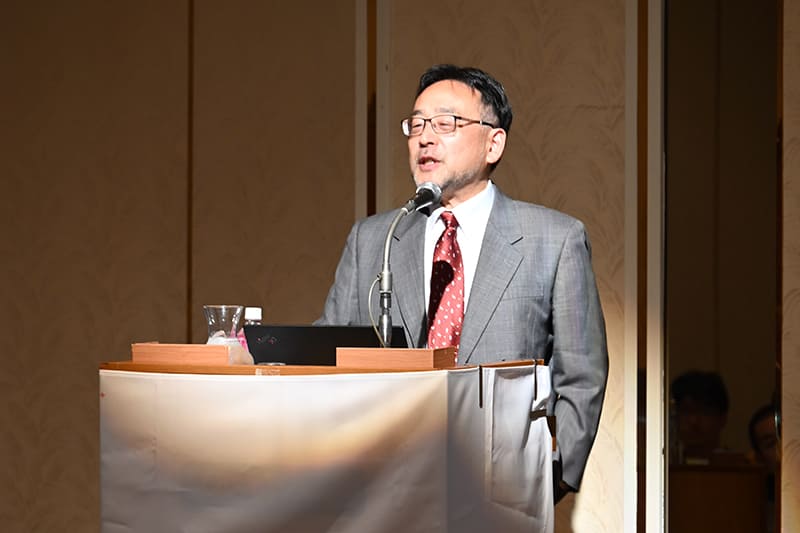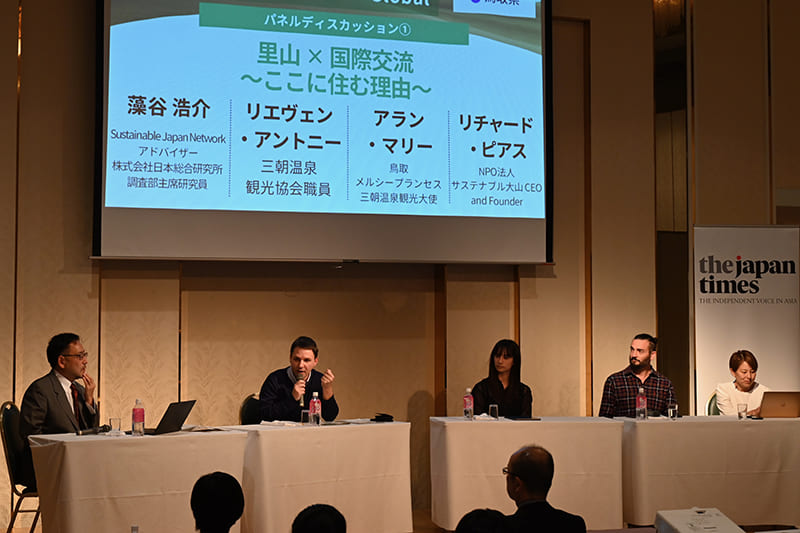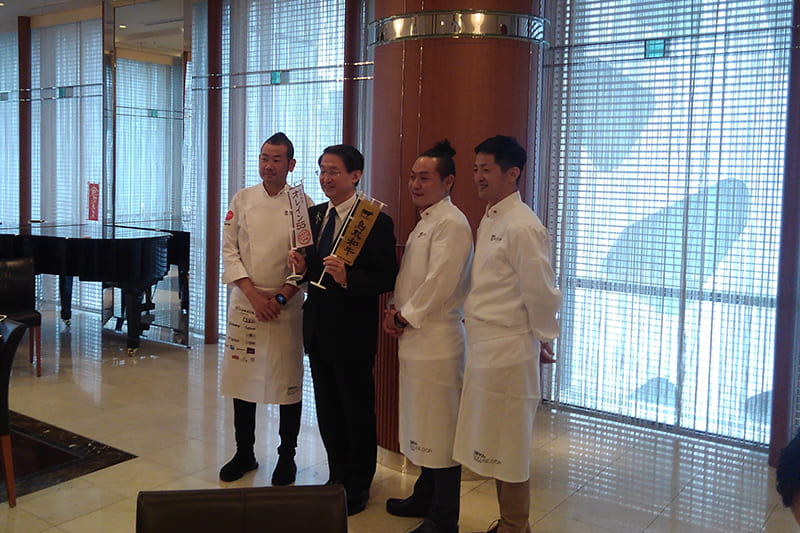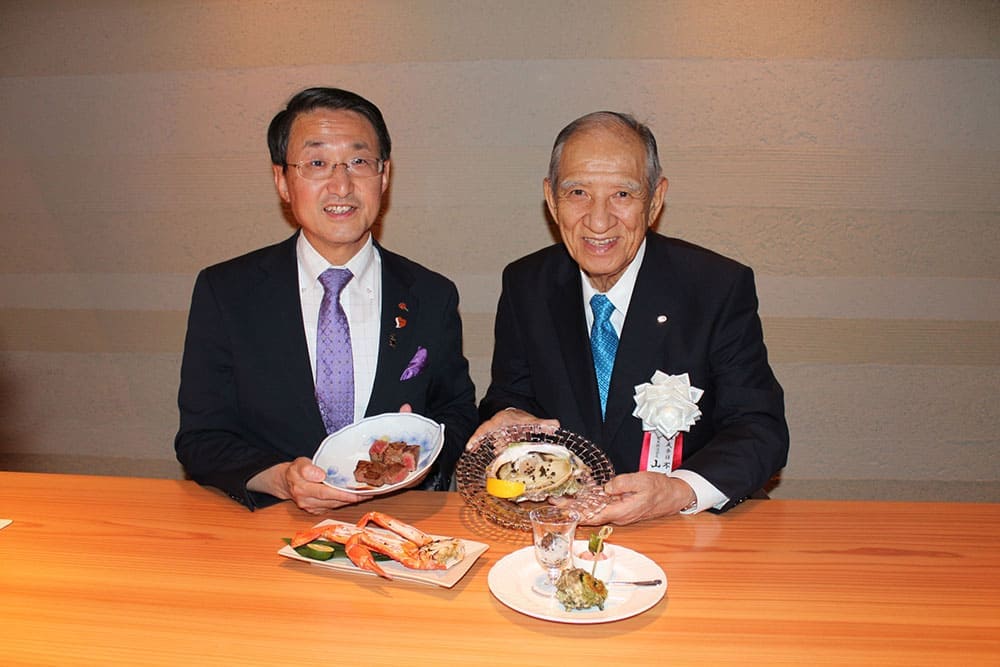February 07, 2023
Tender wagyu, other delicacies hail from clean lands of Tottori
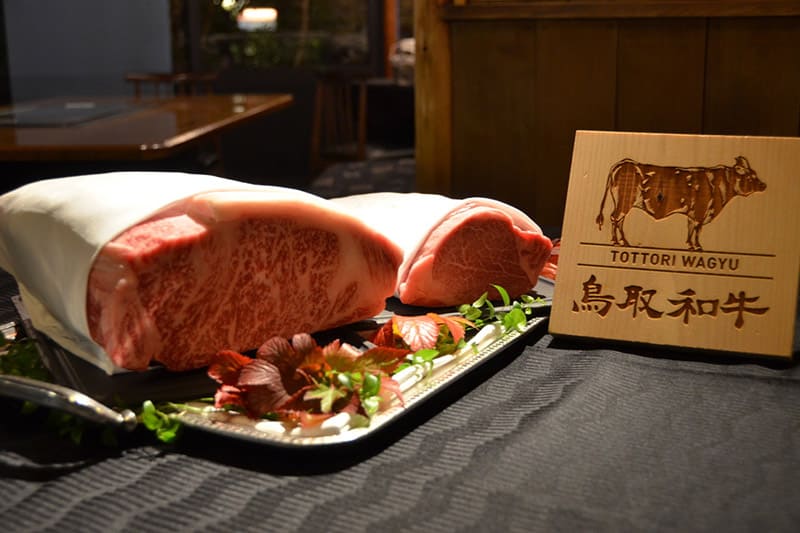
Among many delicacies in Japan, Tottori Wagyu beef and its history is worth learning to make one’s gastronomic life rich. Tottori Gov. Shinji Hirai and Shinsuke Nakajima, Executive Managing Director and Executive Chef of New Otani Co., Ltd. talked about the charms of the wagyu as well as other produce and the blessed environment of the prefecture in a recent interview with the Japan Times. The interview took place at Seisen-tei, a Teppanyaki restaurant located in the Japanese Garden of The New Otani Tokyo hotel where Tottori Wagyu Fair is being held until Dec. 16.
During the Edo period (1603-1867), the horse and cattle market in Daisen in Tottori prospered as one of the three major markets of the kind in Japan. Ketaka cattle bred in this area won the first national contest organized by the Wagyu Registry Association in 1966 and became the ancestry of many wagyu brands produced across the country.
At the 11th contest in 2017, Tottori’s Hakuho 85-3 cattle won the first place, which led to the boost in the price of Tottori wagyu’s calves. At the calf auction held in January, a Tottori wagyu calf was sold for ¥8.91 million, the highest price ever. In recent years, new technologies including genomic analysis are used to produce new breeds of seed bulls such as Takafukunari and Motohanae. “Scientific approaches have been employed in what to feed the cattle as well as how to raise and breed them to continue improving the quality in every aspect,” Hirai said.
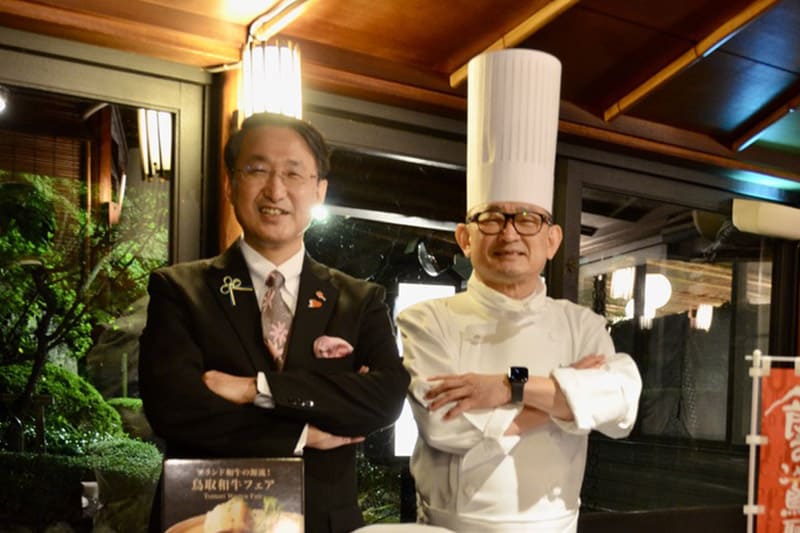
One of the main reasons why Tottori Wagyu is tasty is the high content rate of oleic acid that defines the flavor and texture of beef. “Producers of Tottori Wagyu have been making constant improvements in terms of oleic acid content and flavor components as well,” Hirai said. This is due not only to the quality of the cattle’s pedigree, but also to Tottori’s rich natural environment. Surrounded by the Sea of Japan and mountains including the famous Mt. Daisen, Tottori Wagyu is raised in a healthy and stress-free environment blessed with clean air and mineral-rich underground water.
To promote this wagyu, Tottori Prefecture collaborated with 10 restaurants in Tokyo to offer special menus using Tottori Wagyu during November. At The New Otani Tokyo hotel, the Tottori Wagyu Fair is held at seven restaurants for two months from Oct. 17. The hotel has been hosting the fair every year since 2018. A staff member of Sekishin-tei, one of the restaurants where the fair is taking place, commented that among many foreign guests who have enjoyed Tottori Wagyu during this year’s fair, there was one guest staying Japan for the first time in three years who remembered having the wagyu there three years ago. “I have a full confidence in serving our foreign guests Tottori Wagyu as the top-quality wagyu. In particular, its tenderness has no comparison,” Nakajima said. “Tourists are starting to come back to Japan. What they eat here for the first time in a few years will define Japan’s status as a tourism destination after the pandemic,” Hirai said.
Tottori has more delicacies to offer. The population is the smallest in the country, which is an advantage because the rich natural environment is kept intact, and the air is so clean that the sky in Tottori is full of stars. Hoshizoramai is a new brand of rice produced in Tottori, and the name means “starry sky dance.” Even though dunes are not suitable for vegetable production, the Tottori Sand Dunes have become Japan’s top producer of Japanese leeks after numerous efforts including the application of Japan’s first sprinkler system. Nijisseiki or the 20th Century Pear is also a signature product of Tottori.
In addition to abundant agricultural products, Tottori offers a wide variety of marine products thanks to the plankton-rich area off the coast where the Tsushima Warm Current from Kyushu and the cold current from Hokkaido converge.
Hirai, who is committed to promoting the prefecture internationally, said; “Tottori is blessed with all these agricultural and marine products thanks to the continuous efforts of the producers. It is our responsibility to make them better known to the world. Tottori Wagyu is starting to be recognized domestically, and we are now reaching out to the world.” He also said that Tottori offers many attractive features from diverse food products to places that represent prominent works of Japanese animation and manga such as the Mizuki Shigeru Road in the city of Sakaiminato where the author of “Gegege no Kitaro,” a series of manga and anime featuring yokai (monsters,) was born, and the town of Hokuei where Gosho Aoyama, the author of “Detective Conan” was born.
Nakajima and Hirai shared the hope that the Tottori Wagyu Fair serves as a place of encounter for people to get to know more about the prefecture, encouraging them to visit Tottori to enjoy the beautiful nature and unique culture.
Tottori is a member of the Sustainable Japan Network, a group of companies that cooperate with this newspaper in spreading information about sustainability in Japan. You can also be part of the network; visit https://sustainable.japantimes.com/sjnetwork-en for more details.


